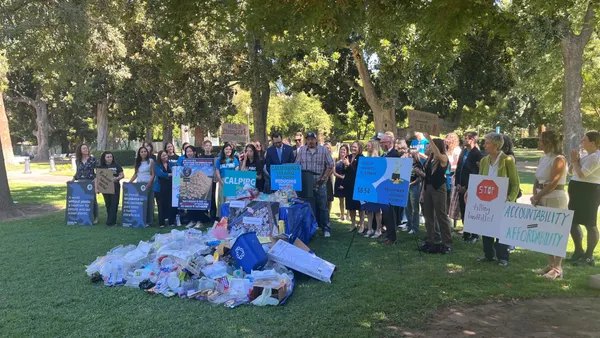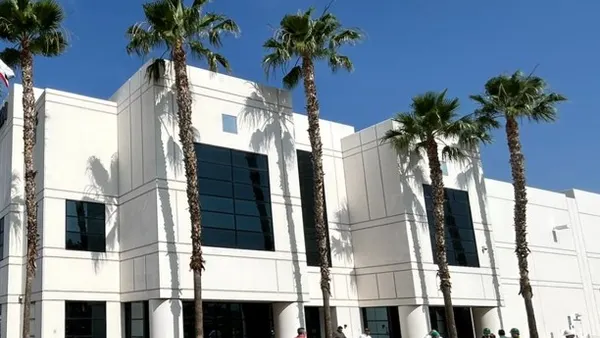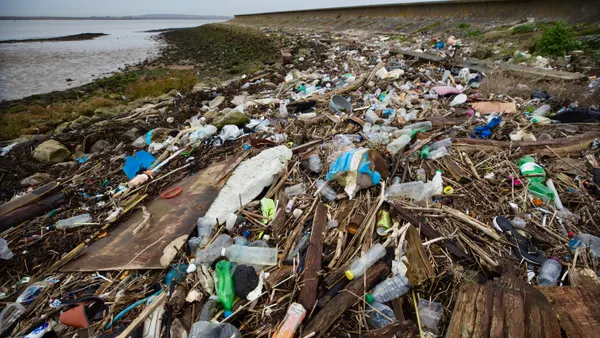Dive Brief:
- The Southeastern Public Service Authority (SPSA) board voted 10-6 to terminate a contract with the company RePower South at its Aug. 23 meeting, as reported by The Virginian-Pilot and the Suffolk News-Herald. The $100 million project planned for Chesepeake, VA would have extracted recyclables and created fuel pellets from refuse sent by SPSA's eight member communities.
- RePower had been slated to process at least 350,000 tons of material per year starting in late 2018, though missed its financial close deadline earlier this year and saw a plan to sell the fuel pellets to Dominion Energy fall through. The company had proposed amending the contract to push the operational date until February 2019, along with extending various financial and permitting deadlines and raising the project debt cap. That didn't pass a tied vote by the SPSA board.
- The SPSA board will now put together a new strategy and request for proposals. Following recent city approval for expansion of SPSA's landfill in Suffolk, board members were reportedly optimistic about their disposal options. A new contract has also been negotiated to continue working with Wheelabrator, though starting next year the company will only handle refuse brought to SPSA transfer stations by private haulers.
Dive Insight:
Following the execution of this 15-year contract in May 2016, RePower had been making progress on the project and said in its latest report to the SPSA board that no further state or local permit approvals were required to start construction after financial close. The company also found another buyer for the pellets after Dominion decided to pull out, but couldn't provide public details yet. The SPSA board had reportedly considered terminating the contract at prior meetings this year and further delays seemed to reinforce their decision.
The contract had also caused strife between SPSA and Wheelabrator, which has been processing material from member communities at a facility in Portsmouth, VA since 2010. RePower had promised lower prices, though Wheelabrator had pushed back on the bidding process and other details. While Wheelabrator will continue doing business with SPSA, the fact that their tonnage is being cut in half next year is not the desired outcome. Following an expensive leachate build-up at the Suffolk landfill, the SPSA board now appears more confident in its prospects after receiving city approval for a seventh cell that could be built in 2024. Prior to that, the Virginia Department of Environmental Quality's latest annual report estimated about nine years of remaining capacity at the site.
In a state that is better positioned than others in terms of landfill capacity, SPSA's member communities appear to have multiple choices for handling their refuse. Whether they will choose to stick with more traditional options or pursue another less common technology in the next RFP process may once again come down to cost.










